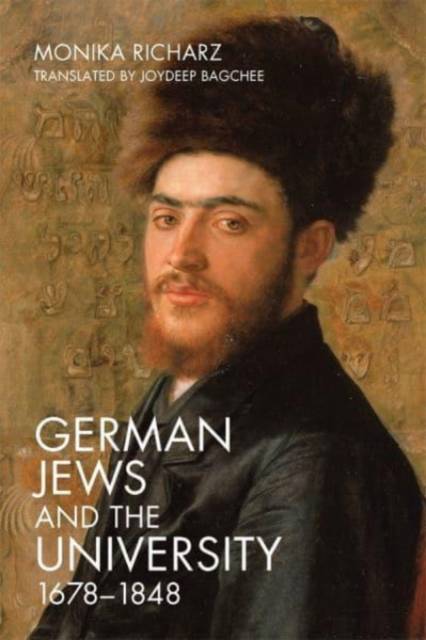
- Retrait gratuit dans votre magasin Club
- 7.000.000 titres dans notre catalogue
- Payer en toute sécurité
- Toujours un magasin près de chez vous
- Retrait gratuit dans votre magasin Club
- 7.000.0000 titres dans notre catalogue
- Payer en toute sécurité
- Toujours un magasin près de chez vous
Description
Traces the gradual opening of university education in Germany to Jews, its significance for assimilation to the bourgeoisie, and the legal restrictions that nonetheless barred Jewish graduates from most professional careers. For centuries Jews in Germany were denied full rights and excluded from gentile society. At the same time, Jewish law restricted scholarship to exegesis of the Talmud. But from the late seventeenth century onward, as German universities progressively opened their doors to them, many Jews turned toward university studies. This process accelerated around 1800 once education (Bildung) assumed a central role for social ascent among the so-called Bildungsbürgertum (cultural bourgeoisie). Many Jews sought to benefit from the professional and social opportunities that university attendance enabled, but they soon discovered that while the state encouraged education as a means of the "moral improvement" of the Jews, it was unwilling to concede them the right to professional careers. Alienated from their ancestral religion and unwilling or unable to return to trading occupations, academized Jews often found themselves leading precarious existences. Many joined the struggle for emancipation or took up the reform of Judaism. Now available in English translation for the first time, Monika Richarz's classic study addresses the far-reaching transformation of German Jewry under the impact of university education. It traces the secularization of Jewish education, the significance of academic education for social assimilation, and the loss of Jewish solidarity with increasing acculturation and emancipation.
Spécifications
Parties prenantes
- Auteur(s) :
- Traducteur(s):
- Editeur:
Contenu
- Nombre de pages :
- 304
- Langue:
- Anglais
- Collection :
- Tome:
- n° 9
Caractéristiques
- EAN:
- 9781640141155
- Date de parution :
- 14-06-22
- Format:
- Livre relié
- Format numérique:
- Genaaid
- Dimensions :
- 152 mm x 229 mm
- Poids :
- 621 g

Les avis
Nous publions uniquement les avis qui respectent les conditions requises. Consultez nos conditions pour les avis.






